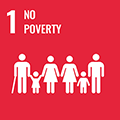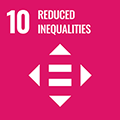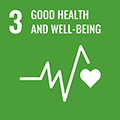The Hidden Costs of Cancer: Why “Free” Care Isn’t Free Enough
This research shines a light on financial toxicity (FT) - the often-overlooked economic strain faced by cancer patients - even within the UK’s publicly funded NHS system. FT encompasses material hardship (like out-of-pocket costs and debt), emotional distress (such as worry or anxiety), and coping strategies (including skipping medication or cutting back on essentials).
While NHS treatment may be free at the point of use, many patients still suffer financially, revealing a hidden burden that impacts their overall health and wellbeing. The findings challenge assumptions about the protective power of universal healthcare and call for stronger support systems.
Research Challenge
Understanding Financial Toxicity in a Universal Healthcare Context
Financial toxicity is a well-documented issue in countries without universal healthcare, such as the United States. But how does it manifest in systems like the NHS, where care is ostensibly free? This research set out to uncover the prevalence and impact of FT among cancer patients in the UK and compare it to the US. The goal: to reveal how different healthcare models shape financial outcomes for patients and to surface gaps in support that aren't currently addressed by policy or clinical practice.
Our Approach
Spotlighting the Financial Fallout: What Cancer Patients Face Beyond Treatment
The research aimed to:
- Assess the prevalence and drivers of financial toxicity in the UK and US
- Compare the impact of FT on health-related quality of life (HRQoL) in both systems
- Understand how universal healthcare affects financial strain among cancer patients
- Elevate the patient voice in policy debates by surfacing lived experiences often hidden from the data
Measuring the Hidden Burden: Combining Financial and Quality of Life Data
Researchers surveyed 600 cancer patients and survivors in the UK and US. They used the COmprehensive Score for financial Toxicity (COST) to measure FT levels and the EQ-5D-5L instrument to evaluate HRQoL utility scores.
Surprising Gaps, Stark Contrasts: How Healthcare Models Shape Patient Hardship
- Prevalence: 34% of UK participants experienced financial toxicity, compared to 55% in the US.
- Drivers: In both countries, higher income and retirement status reduced the risk of FT. In the US, women were more vulnerable; in the UK, age and sex showed no significant effect.
- Impact on Health: FT was strongly linked to lower HRQoL in both countries. In the UK, HRQoL scores dropped from 0.81 (no FT) to 0.41 (moderate/severe FT); in the US, from 0.88 to 0.53.
- Unexpected Insight: Despite facing more severe FT, US patients reported better overall HRQoL scores - suggesting that cultural expectations about the cost of care may shape how patients cope with financial stress. UK patients, by contrast, may be more psychologically affected due to the belief that care should be “free.”
“Free NHS care can create a false sense of security. Beyond medical bills lie hidden costs - lost income, travel, emotional strain. Financial toxicity remains a silent crisis in the UK.”
- Dr Ngan Tran
What impact did it make?
Rethinking Support: Why Financial Well-being Must Be Part of Cancer Care
This research exposes a critical blind spot in universal healthcare: free treatment does not equal financial protection. Even within the NHS, cancer patients face significant indirect costs - lost income, travel expenses, lifestyle disruptions - that affect both their wallets and wellbeing.
Policy Implications:
- In the UK: The study calls for targeted interventions such as financial counselling, better access to non-medical support, and policies that mitigate income loss during treatment.
- In the US: The findings reinforce the need for systemic reform that addresses both medical and non-medical costs of cancer care.
By placing financial wellbeing alongside clinical outcomes, this research advocates for a more holistic, patient-centred approach to cancer care - one that recognises economic resilience as a core component of survivorship.
Our impact
Impact related to the UN Sustainable Development Goals
Learn more about Queen’s University’s commitment to nurturing a culture of sustainability and achieving the Sustainable Development Goals (SDGs) through research and education.










